WEEK 16: Applications and Implications
Indoor climate advisor
What will it do?
The idea is to make a device that is able to tell you how good is the indoor air quality of your home. By measuring parameters such as temperature, Humidity, VOC and CO2, it can calculate how good good are the values all together and it can tell you if you are breathing a good or a poor quality air. For instance, if the device is telling you that the air quality is not good, it might be necessary to open a window, or to turn on the heating.
As I want the device to be a part of anybody's home, I'd like it to be aesthetic as a piece of furniture or decoration.
It should tell you with just a fast look at it if the air quality is good or not. To make the design as simpler as possible, the real values measured are gonna be able to be checked from a smartphone or a computer by sending data to a server.
Who's done what beforehand?
Smart Citizen Kit
One good example is the Smart Citizen Kit that was developed here in FabLab Barcelona, that can measure the outdoor air quality in order to share it with the comunity empowering them to seek for solutions. Link to the Smart Citizen Kit.
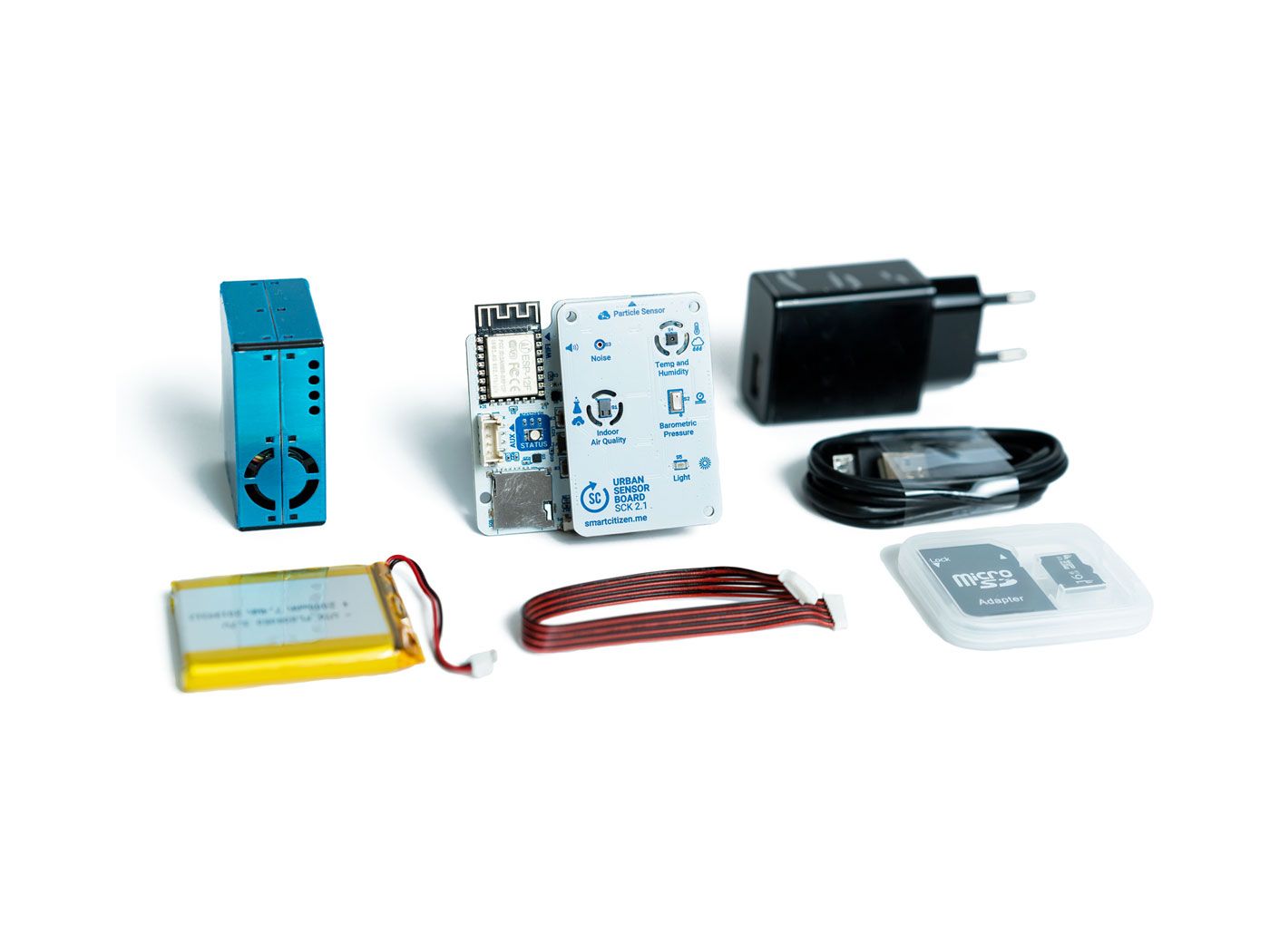
Air Bird
Air Bird is a clever indoor climate sensor developed by GXN, that works like a kind of a coach giving you feedback via gentle bird sounds in case you have a poor air quality in your home. Lint to the Air Bird
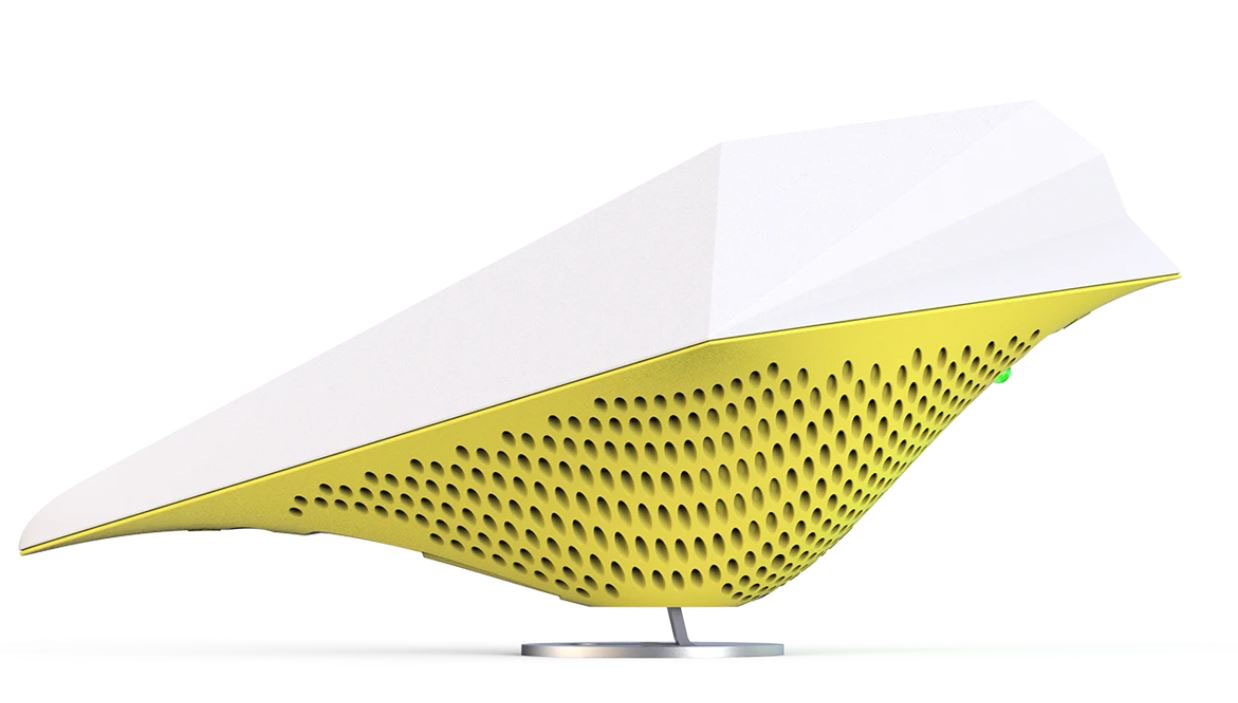
What will you design?
To design the shape and the interface of the device, I came up with the idea of making it in a shape of a candle, so that it goes off in case the air quality drops, and on again in case the air quality improves. There might be one or two intermediate states, when the candle is twinkling about to turn off.
This idea is based in some lamps that were used in coal mines to prevent explosions due to firedamp, like the Geordie lamp, invented by George Stepheson in 1815. The operation of this lamp is such that, in case the proportion of firedamp became too high and the oxygen drops, the lamp is extinguished.
Example of the operation of the candle:
Good air quality, the candle is always on
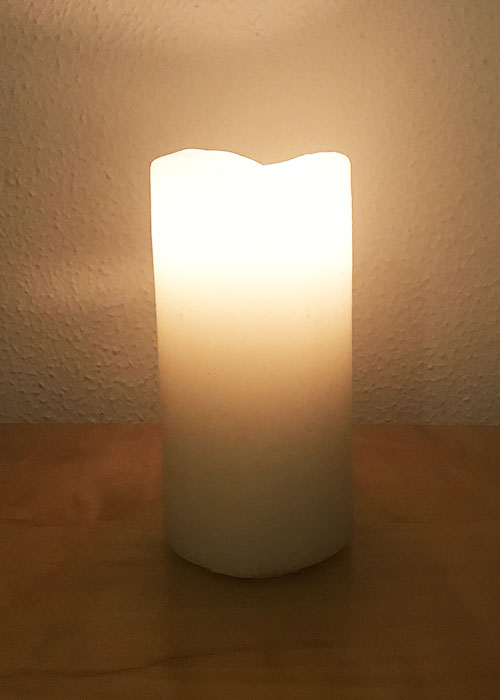
Not so good air quality, the candle is twinkling about to turn off

Poor air quality, the candle is off
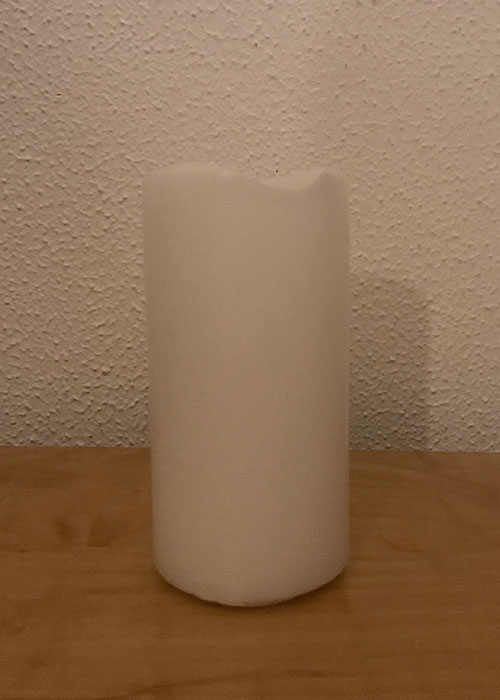
Technical design and render:

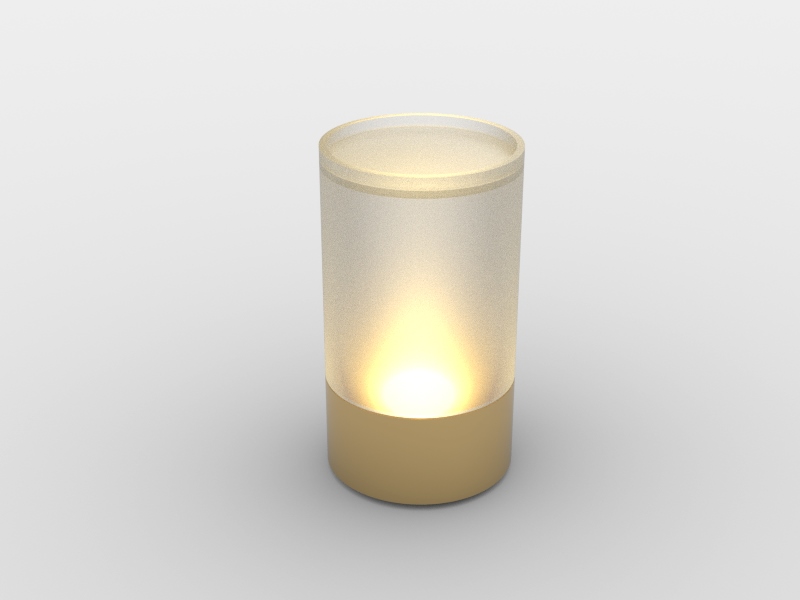
Operation diagram:

What materials and components will be used?
Hardware:
Base (candle holder):
- CNC milled aluminium or brass
Candle:
- SLA printing or
- Resin / composite moding and casting or
- Wax casting or
- Wax milling
Electronics:
For the electronics I will need a server that it could be a Raspberry Pi and it will be somewhere in the house, and the for the electronics of the candle itself I will need a microcontroller that allows the communication via WIFI with the server, sensors to measure temperature, humidity, CO2 and VOC, and all the other components required to make the board work such as resistors, capacitors or connectors. I will also need at least one light that it could be a LED and it might be interesting to use a RGB LED to be able to change the colour. Lastly I will also need a power suply, that it could be a battery or just a cable or a connection to plug it to the electricity with a transformer.
Sensors:
- Temperature & Humidity sensor: Grove I2C Temp & Humidity sensor | Grove - CO2 & Temperature & Humidity Sensor 3-in-1 | SHT35 SMD | Bosch Sensortec BME680
- CO2 sensor: Grove - CO2 & Temperature & Humidity Sensor 3-in-1 | Gravity: Analog CO2 Gas Sensor | STC31 Thermal Conductivity Sensor for CO2 | SCD4x Miniaturized CO2 Sensors | SEK-SCD41-SENSOR
- VOC sensor: Bosch Sensortec BME680 | Grove - VOC and eCO2 Gas Sensor
Other components:
- Microcontroller: EPS32
- Resistors:
- Capacitors:
- Button
- Swith
- Micro-usb connector
- FTDI chip
- LEDs: LED RGB 1-3W
- Copper board for the PCB
- Fan
- Mosfet
- Voltage regulator for the ESP32
- Voltage regulator for the LED
Power supply:
- Charger
- Battery?
- Connector
Server:
- Raspberry Pi Zero W
- Cable and transformer for Raspberry Pi
Where will come from?
These are some of the suppliers that I might use to order all the components I need:
- FabLab Barcelona
- Digi-Key
- Amazon
- DFrobot
- Mouser
- Seed Studio
- Broncesval
How much will they cost?
| Component | Supplier | Cost |
|---|---|---|
| EPS32 | FabLab stock | - |
| Resistors | FabLab stock | - |
| Capacitors | FabLab stock | - |
| Button | FabLab stock | - |
| Switch | FabLab stock | - |
| Micro-usb connector | FabLab stock | - |
| FTDI chip | FabLab stock | - |
| SMD LED | FabLab stock | - |
| Copper board | FabLab stock | - |
| Mosfet | FabLab stock | - |
| Voltage regulator to 3.3V | FabLab stock | - |
| Voltage regulator to 12V | FabLab stock | - |
| 12V charger | FabLab stock | - |
| Power supply connection | FabLab stock | - |
| Raspberry Pi Zero W | FabLab stock | - |
| SD Card | FabLab stock | - |
| Power supply for Raspberry | FabLab stock | - |
| Bosch BME680 sensor | FabLab stock | - |
| CO2 sensor SCD30 | Digi-Key | 44,66 € |
| LED RGB 1W | Amazon | 9,99 € |
| Brass/Aluminium | Broncesval | 40,00 € |
| SLA resin | FabLab stock | - |
What parts and systems will be made and what processes will be used?
- Base: Aluminium or brass CNC machining
Example of brass machining:
- Shade: FDM or SLA 3d printing (optional tests: molding and casting)
Tests in FDM with natural filament and SLA with transparent resin (the result desired is not achieved yet):
- Electronics: PCB milling
- Programming
- Server & Networing

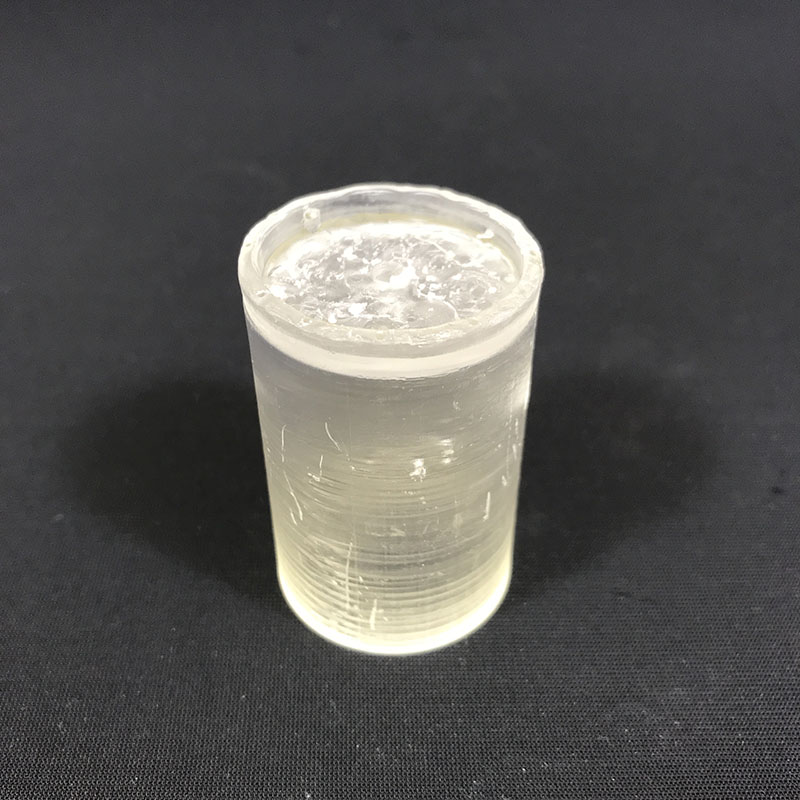
What questions need to be answered?
- Are the sensors gonna be able to measure the air quality from inside the candle?
- What if the LEDs stop working
- Is the design appropriate? Is it too direct or too abstract?
- Is it easy to read all the values from your smartphone?
- Is it gonna be plugged or is it gonna have a battery?
How will it be evaluated?
Although I think it's not me who should answer this question, I would say that if I needed to evaluate this project I would consider the following aspects:
- Design: The product has a good and well thought design, and it takes into account the integration with the enviroment where it will be, that is, for example, a shelve in your living room.
- Functionality: It it useful for the purpose it was thought, this means that it will allow you know the quality of the air of your home and therefore you will be able to take measures to improve it, and it is also aesthetic.
- User experience: The device is easy to use, and anybody can get familiar with it easily. The interpretation of the light signs that it shows you should be straightforward, as well as the data that you can get from the server.
- Operation: It works smoothly for the function it was thought, showing real data and working well in different kinds of situations.
Planning:
Planning from today until the 9th of june when we have the final presentation:
